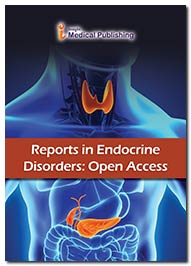Influence of testosterone replacement therapy on metabolic disorders and autonomic diabetic neuropathy in patient with type 2 diabetes mellitus and Androgen deficiency
Abstract
Introduction: Over the past few decades, obesity and Diabetes mellitus has become a global health challenge. Multiple epidemiological studies have shown that low testosterone levels are associated with and predict the future development of T2D and the metabolic syndrome. Materials and Methods: 125 male patient with diabetes mellitus was screened, 85 subjects with 41-65 years and BMI 27,0 – 48,0 kg/m2 were randomized In placebo-controlled study, who underwent a routine physical examination and choose free testosterone examination. Also for assessment of autonomic diabetic neuropathy was used “Vegetotester” — digital instrument for vegetative nervous system study. Results: After six months of treatment we repeated the diagnostic assessments: We had some positive results cholesterol, triglyceride and LDL levels decreased, and HDL increased both of group but better results was in first group which was clinically significant. Free testosterone level increased in all groups but the best results was in I group which was clinically significant where was used of testosterone undecanoate. HbA1c decreased in both group but in I group we had the best result. BMI decreased in both groups but more reduction was in I group. leptin level after treatment was approximately same in both groups, but compared best results was achieved in I group, also blood pressure were reduced in both group, where we found alike results. Also in first group were positive results about autonomic diabetic neuropathy. Discussion: Autonomic diabetic neuropathy, Serum testosterone, glycosylated hemoglobin, high-density lipoprotein cholesterol, triglyceride concentrations, and the BMI, Hypertension improved in both treatment groups after 26 weeks of treatment. We have shown that testosterone replacement therapy improves insulin resistance and glycemic control in hypogonadal men with diabetes. Conclusion: This study demonstrated that it is possible to break into this vicious circle by raising testosterone levels in diabetic men and low testosterone level. Maybe low level of testosterone has some role in pathogenesis of autonomic diabetic neuropathy. Re-instituting physiological levels of testosterone in hypoandrogenic men as our small study shown, have an important role in reducing the prevalence of diabetic complication.
Open Access Journals
- Aquaculture & Veterinary Science
- Chemistry & Chemical Sciences
- Clinical Sciences
- Engineering
- General Science
- Genetics & Molecular Biology
- Health Care & Nursing
- Immunology & Microbiology
- Materials Science
- Mathematics & Physics
- Medical Sciences
- Neurology & Psychiatry
- Oncology & Cancer Science
- Pharmaceutical Sciences
